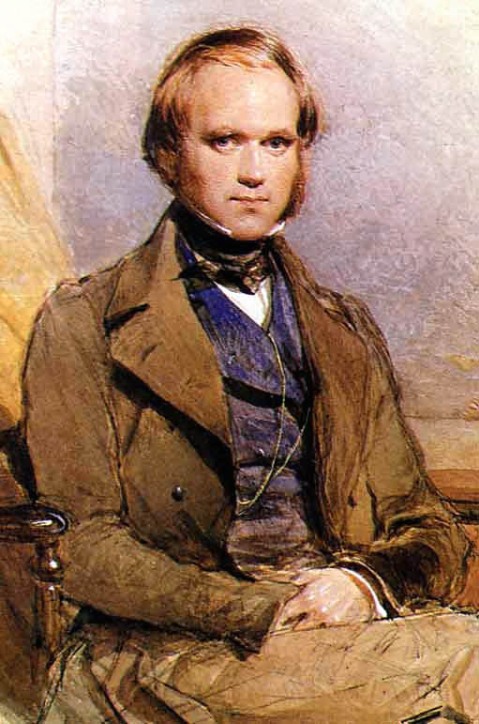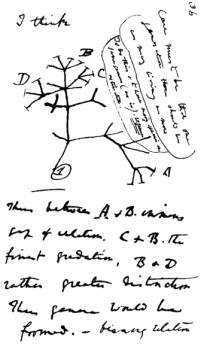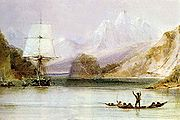CIA officers rape women, steal money, pamper mistresses
Longtime CIA case officer Andrew Warren is being investigated for apparently raping two women in Algeria where he was stationed. Warren (Wikipedia article) had a reputation for taking potential recruits to strip clubs and brothels. As the Washington Post reports:
As CIA case officers attempt to recruit a foreign spy, they often offer personal inducements, ranging from cash to medical care. In some cases, a potential recruit may be taken to a strip club or even to a prostitute if it is deemed critical to cementing the relationship, longtime officers say. But for Warren, “it was a lifestyle thing,” costing the agency thousands of dollars, said one former co-worker who describes himself as a friend.
Several of his colleagues (i.e. multiple people) said they were not surprised by the sexual assault allegations. And this guy was still in a position of trust and responsibility why? Though the matter has attracted the attention of Congress, and resulted in a joint statement by the chairperson and the ranking member of the Senate committee that oversees the CIA, charges have not been filed against Warren.
Happily, not all of the corrupt CIA employees have been so lucky. Steve Levan, a 16-year veteran who worked for the No. 2 man in the agency, recently pleaded guilty to misusing agency credit cards which were supposed to be used by undercover agents—to the tune of $115,000, much of which he spent on his mistress. His attorney filed a motion saying that the judge should consider Mr. Levan’s allegedly strong record of service at the CIA—a record which hasn’t been released. In other words, the mere fact that he worked for the CIA means that he should be held to an easier standard than common folks.
Then there’s Kyle “Dusty” Foggo (Wikipedia article), the agency’s former No. 3 officer, who was indicted on corruption charges two years ago. He helped a high school friend of his, Brent Wilkes, score CIA contracts. Oh, and he also used the agency to provide for his own mistress. The Post reports:
After … his mistress was turned down for a job in the general counsel’s office, Foggo, who was the CIA’s executive director, called an associate general counsel into his office and “grew increasingly loud in tone and condescending,” according to a memo the counsel placed in her files. “[S]peaking in the third person, [Foggo] said, among other things, that when the EXDIR has an interest in a candidate for employment that I had better respect the EXDIR’s interest.”
The mistress was subsequently hired after an accelerated security check, because her paperwork was tagged “ExDir interest.” When her failure to perform required duties provoked her supervisor’s complaints, Foggo arranged for the supervisor—a 20-year veteran who had won many performance awards—to be ousted and moved to the Defense Department. The supervisor alleged in a court affidavit that her ouster was retaliatory.
The matter of his mistress was not a one-time mistake on Foggo’s part. A 1989 performance review stated that he “takes a very liberal and self-serving position regarding the interpretation of Agency rules and regulations” and warned that “he is likely to remain a potential threat to security through his poor judgment.” After the September 11th attacks, he used his position as the agency’s top administrator—hand-picked by the director—to steer CIA contracts to a friend of his, who repaid him with, among other things, a $30,000 vacation in Hawai’i. As the U.S. Attorney said at his sentencing hearing, “A man who exploits a national crisis should be humble enough to not call himself a patriot.”
But Foggo does claim to be a patriot: in a court filing, his attorneys claimed that he has “committed his life to public service” and that his dedication and skills justified his promotions, the record of misconduct in his personnel file notwithstanding. They declined to elaborate. Again, the mere act of working for the CIA should get him a lighter penalty, nevermind the fact that he used his position to enrich and benefit himself, not the people.
One former intelligence officer, a 26-year veteran of the CIA, writes that
This affair demonstrates what officers in the closed society of the CIA have known for years: that senior management uses a double standard that allows members of the agency’s “good ol’ boy” network to do whatever they wish.
Mr. Foggo’s offenses included breaches of agency regulations that, for others, have raised questions of loyalty and sometimes resulted in dismissal. Yet, Mr. Foggo simply got a wink and a nod from superiors who continued to protect him. This sort of cronyism continues to harm agency morale.
As Mr. Foggo’s defenders have done, these senior officials also would undoubtedly like to portray themselves as great “patriots.” But Samuel Johnson said it best when he noted that “patriotism is the last refuge of a scoundrel.”
John Radsan, a former CIA assistant general counsel, agrees. He says that the internal guidelines and structures that are supposed to guard against corruption and misconduct are really a self-regulating system with few incentives for reporting bad behavior. That’s why we end up with a swell fellow like Kyle Foggo atop the CIA.
The CIA’s response to these many scandals is to point out that they have lots of employees and not all of them lie, cheat, and steal and, really, only a very tiny minority of them go around raping women. So it’s all really okay, thank you for your interest—and go screw yourself while we patriots keep saving America.
Charges may still be filed against Andrew Warren. If convicted, he’ll probably resort to the last refuge in order to save the only thing he cares about: himself.
See also this blog post, about FBI agents who fleeced taxpayers for $7.8 million
New Mexico abolishes death penalty

New Mexico has a great flag; it was rated #1 in the Union in a 2001 NAVA survey
New Mexico’s governor, Bill Richardson, signed a bill that abolishes capital punishment in that state—at least henceforth; the two people currently on death row in the Land of Enchantment will stay there. For crimes committed after 1 July of this year the maximum penalty will be life in prison without the possibility of parole.
New Mexico is the second state to abolish capital punishment since the U.S. Supreme Court reinstated it in 1976. New Jersey did so in 2007. The state used the death penalty very sparringly, only executing one person since 1960.
Richardson said that over 12,000 people contacted his office by phone, e-mail, snail mail, or in person; over three-quarters supported repeal. While he used to support capital punishment, he cites the possibility of executing an innocent person and the racial disparity in the penalty’s application as reasons for abolishing it.
There are now 15 states without the death penalty; two of them, Nebraska and New York, had existing statutes declared unconstitutional by their Supreme Courts and have yet to pass new laws. About 22.25% of all Americans live in a state without the death penalty. Many others, including Maryland, are considering abolishing it.
Winner of $1.4 million Templeton Prize announced
The winner of the 2009 Templeton Prize has been announced. According to the NY Times:
Bernard d’Espagnat, 87, a French physicist and philosopher of science, has won the $1.4 million Templeton Prize for his work on the philosophical implications of quantum mechanics, the John Templeton Foundation said Monday in Paris. Noting that the rules governing the behavior of subatomic particles contravene common-sense notions of reality, Dr. d’Espagnat, a professor emeritus at the University of Paris-Sud, coined the term “veiled reality” to describe a world beyond appearances, which science can only glimpse and which he said could be compatible with “higher forms of spirituality.”
ScienceNOW reports that “Over the years, he has developed the idea that the reality revealed by science offers only a ‘veiled’ view of an underlying reality that science cannot access, and that the scientific view must take its place alongside the reality revealed by art, spirituality, and other forms of human inquiry.”
The Templeton Prize (Wikipedia article), established in 1972, is the best known award given out by the Templeton Foundation; it is awarded to a person who “has made an exceptional contribution to affirming life’s spiritual dimension, whether through insight, discovery, or practical works.” Until 2001 it was formally known as the “Templeton Prize for Progress in Religion” and from 2002-2008 it was called the “Templeton Prize for Progress Toward Research or Discoveries about Spiritual Realities.” The monetary award, currently £1,000,000 (ca. $1.4 million U.S.) exceeds the cash that accompanies the Nobel Prizes.
M. d’Espagnat will formally receive the award from the Duke of Edinburgh at Buckingham Palace on 5 May.
Russia to increase military spending
According to the BBC, Russian President Dmitry Medvedev has announced that Russia will begin a comprehensive military rearmament from 2011.
Mr Medvedev said the primary task would be to “increase the combat readiness of [Russia’s] forces, first of all our strategic nuclear forces”.
Explaining the move, he cited concerns over Nato expansion near Russia’s borders and regional conflicts.
Increased oil revenues make such spending possible. The recent conflict with Georgia (the country, not the state) apparently demonstrated to them that much of their equipment is outdated and their tactics need updating.
District of Columbia may soon have full representation in U.S. House
A bill that would give the District of Columbia full representation in the U.S. House has cleared a key hurdle in the Senate, a procedural vote invoking cloture, 62-34, that will allow it to face a final vote in that chamber later this week. A majority of senators appear to support it. If passed by the Senate, it will then go to the House of Representatives, where such bills have previously been approved in past Congresses. President Obama has indicated he will sign the legislation.

In 2002 the District almost added "Taxation Without Representation" to their excellent flag. If this bill passes, the flag will be even safe from such defacement.
The District presently has a Delegate in the House of Representatives, since 1991 Eleanor Holmes Norton (D). Delegates can vote in committee and on amendments but not on final passage of legislation. Puerto Rico, Guam, American Samoa, the Virgin Islands, and the Northern Mariana Islands also currently have delegates in the House; none has representation in the Senate (which the present bill would not change for the District).
Washington, D.C. is overwhelmingly Democratic; typically only about 10-15% of the city’s vote in presidential elections goes to the Republican ticket. It is extremely unlikely that the District would elect a Republican to any House seat that it is given. I don’t think such political considerations should bear on the matter, however. The bill in question, S. 160, would also grant another House seat to the State of Utah, which is currently represented by two Republicans and one Democrat, in the lower house. Utah is one of the most Republican-leaning states in the Union and would likely elect a Republican to that seat. The state missed out on gaining a fourth representative by just 856 people after the 2000 census (it went instead to North Carolina; there were some lawsuits over the way people were counted, but they went against Utah).
I think that the people of Washington, D.C. should have full representation in Congress—and not just because I don’t want them to mess up their flag, either; it seems like a matter of right to me. However, I think that the bill is probably unconstitutional. The Constitution says that Representatives shall be chosen “by the people of the several states” and a normal reading would seem to limit full congressional representation to states, which the District clearly is not. The Supreme Court’s precedents on the matter are divided, but it does appear likely the Court would strike down the bill. A Constitutional amendment may be needed to rectify the problem.
You won’t be able to shoot animals in Wyoming on the internet anymore

The bison of Wyoming's flag originally faced the fly end; but animals on flags almost always face the hoist end, and the bison was turned
The Wyoming Senate has given preliminary approval to a bill that would outlaw internet hunting in the Union’s least populous state. First used in Texas, which has also since outlawed the practice, internet hunting allows people to shoot animals with a remote-controlled gun and a webcam.
“It’s absolutely despicable to have a remote gun, unless we were able to send the gun to Iraq or something like that,” [Sen. Charles] Townsend said. “So lets vote it out of here right now.”
John Emmerich, deputy director of the Wyoming Game and Fish Department, said after the Senate vote that the department supports the bill and opposes Internet hunting. He said 38 states have already passed bans.
Wyoming game rules make allowances for hunters who use wheelchairs as well as for blind hunters, Emmerich said.
However, Emmerich said, “Killing something on the Internet is not consistent with the whole concept of hunting and fair chase.”
According to Wikipedia, internet hunting has never been a viable industry. There is some worry that the remote control guns may now just be relocated to other countries with looser laws on what you can shoot from thousands of miles away.
North Dakota may grant human rights to individual cells

Officially, the ratio of North Dakota's flag is 33:26, but they're almost always made in the more standard 5:3 ratio
The North Dakota House of Representatives approved a bill that would grant human rights to fertilized egg cells, a move designed to challenge abortion and Roe v. Wade. The bill passed 51-41 and now moves on to the 47-member state Senate.
If passed by the Legislative Assembly and signed into law by the Governor, the bill will face a challenge in the courts, which will almost certainly declare it unconstitutional and a violation of Roe v. Wade. Critics say that defending the law in the courts will be an unnecessary expense for the state, since defeat is almost certain. The current composition of the Supreme Court, and the likely composition after any Obama appointments, make it unlikely that that tribunal would intervene to overturn its prior precedents in abortion law.
The operative text of the bill reads as follows:
References to individual, person, or human being – Legislative intent. For purposes of interpretation of the constitution and laws of North Dakota, it is the intent of the legislative assembly that an individual, a person, when the context indicates that a reference to an individual is intended, or a human being includes any organism with the genome of homo sapiens.
The measure is very similar to Colorado’s Amendment 48 (blogged about in detail here), which would have modified that state’s constitution to define a fertilized egg as a person. The people of Colorado examined the issue closely and handed Amendment 48 a huge defeat—73.3% of voters rejected it, almost a 3:1 margin.
To abortion opponents this sort of thing may sound good, but upon examination the law becomes extremely problematic. Not only abortion, but many common forms of birth control that prevent fertilized eggs from implanting in the uterus would be illegal; women on the pill could potentially be charged with murder. The law would also be likely to have a chilling effect on the medical community for various reasons.
Even if the law was a good idea, it is so likely to be struck down in the courts that passing it would amount to only a fairly costly symbolic gesture. I think the people of North Dakota have more important business for their legislators to be attending to.
Israel takes more Palestinian land
Unfortunately, MSNBC reports that Israel is planning to take over even more Palestinian land, further adding to already illegal West Bank settlements.
Plans to expand a West Bank settlement by up to 2,500 homes drew Palestinian condemnation Monday and presented an early test for President Barack Obama, whose Mideast envoy is well known for opposing such construction.
Israel opened the way for possible expansion of the Efrat settlement by taking control of a nearby West Bank hill of 423 acres. The rocky plot was recently designated state land and is part of a master plan that envisions the settlement growing from 9,000 to 30,000 residents, Efrat Mayor Oded Revivi said.
The settlements, located on land captured by Israel in the 1967 Six-Day War, are illegal under international law which requires military occupiers to adminster areas under their control for the good of the local populace, not for their own good. Many of the settlers are frank about wanting to make it impossible for Palestinians to form their own state, something that they are unfortunately accomplishing; these settlements derail the peace process. Furthermore, Israel is stealing property from individual Palestinian landowners to make these settlements and their concomitant access roads.
About 290,000 Israelis live in the settlements—about 4% of the nation’s population—up from about 195,000 in 2001.
Woman appointed to Saudi Council of Ministers

The Saudi flag bears does not appear on military uniforms because it bears the shahada ("There is no god but Allah, and Muhammad is his Prophet") which it would be blasphemous to display while going to the bathroom
This blog’s very first post concerned women’s rights in Saudi Arabia and we have since followed other developments in the desert kingdom, good, bad, and ugly. This one is good: King Abdullah has appointed a woman to the Saudi Council of Ministers for the first time. Noor Al-Fayez will serve as deputy minister for women’s education.
Saudi Arabia is one of the world’s few remaining absolute monarchies. The Council of Ministers is appointed by and responsible to the king and merely advises him on the formulation of general policy and assisted with managing the activities of the bureaucracy. The council consists of a prime minister, the first and second deputy prime ministers, 20 ministers (of whom the minister of defense also is the second deputy prime minister), two ministers of state, and a small number of advisers and heads of major, autonomous organizations.
Khaled Al-Maeena, editor-in-chief of Arab News, an English-language daily newspaper in Saudi Arabia, called many of the other appointments in what is the council’s biggest shake-up since Abdullah became king in 2005 very “progressive”, which is a very good thing.
King Abdullah appears to be, very slowly, moving the country in a more liberal direction, but considering how reactionary the place is it’s still just about the most conservative place on the planet. He is 84 years old and the Crown Prince is just two years younger. Succession to the Saudi Monarchy can be a messy process and it will be interesting to see how things shake out in the next two decades when the last of the sons of Ibn Saud, the nation’s modern founder, pass on.
Happy birthday, Charles Robert Darwin

Charles Darwin, about age 30, shortly after his return from the voyage of the Beagle. If he were still alive, he'd be 200 years old today.
Today is the 200th birthday of Charles Darwin (and of Abraham Lincoln too; they were born within hours of each other). Darwin, who I have previously blogged about here, ranks with Newton and Einstein as one of the most important scientists of all time. So take a bit of time today to learn more about this extraordinary individual.
To humanize him and add some context and framework for his accomplishments, here is a brief time line of some notable events in Darwin’s life, which may contain some facts that you don’t yet know about the great naturalist:
12 February 1809: Charles Robert Darwin was born in Shrewsbury, Shropshire, England, the fifth of six children to physician Robert Darwin and Susannah (née Wedgwood) Darwin, the daughter of industrialist Josiah Wedgwood (1730- 1795).
1825–1828: Studies medicine at the University of Edinburgh. He joins the Plinian Society, a group for students interested in natural history. He gives up medicine because he can’t stand the sight of blood and 19th century surgery.
1828–1831: At his father’s urging, he begins preparing for a career in the clergy; he studies theology at Christ’s College, University of Cambridge, in preparation for a career as a parish priest. He collects beetles and enrolls in a course run by Rev. John Stevens Henslow, professor of botany.
1831–1836: At the suggestion of Rev. Henslow, he accompanies Captain Robert FitzRoy (1805–1865), future admiral and Governor of New Zealand, on the second survey expedition of HMS Beagle as an unpaid naturalist. Originally planned to take two years, the five-year voyage takes him across the Atlantic to the southern part of South America, returning via Tahiti and Australia; the Falkland Islands, Argentina, Chile, Peru, Australia, New Zealand, Mauritius and South Africa featuring on his extensive itinerary. He observed the behavior of different plant and animal species, and analyzed his large collection of specimens for three months on his return.
1838: Moves to London and, once compiled, he begins publishing his findings in various papers and volumes.
1839: Journal and Remarks (later known as The Voyage of the Beagle) appears in print and he is elected a Fellow of the Royal Society on 24 January. Five days later he marries his cousin Emma Wedgwood (1808–1896), the youngest of seven children to potter Josiah Wedgwood II (1769–1843), and his wife Bessy. They would have 10 children, two sadly dying in infancy. George, Francis and Horace became, respectively, an astronomer, botanist and civil engineer of repute. Charles and Emma were avid backgammon players; he faithfully records the results of their nightly games for many years.
1842: The Darwins move to Downe House in the village of Downe, Kent. He does his theorizing in his home study, in part so he can be close to his children. He publishes his first book on a specific subject, The Structure and Distribution of Coral Reefs.
1853: He is awarded the Royal Society’s Gold Medal for his four volumes on barnacles.
1856: Darwin becomes aware of Alfred Russell Wallace’s theories on evolution and is persuaded to finally publish his work to establish priority.
1858: The outlines of his natural selection theories are jointly published alongside the similar theory proposed by Alfred Russell Wallace (1823-1913) in the Journal of the Proceedings of the Linnean Society. His grandfather, scientist Erasmus Darwin (1731-1802), was one of those who had already argued in favour of evolutionary ideas.
1859: His epic On the Origin of Species, a collection of evidence collected from the study of fossils, comparisons of anatomy and embryology, appears after more than 20 years in the making. It presents a theory in which living beings are related by common genealogical descent; discourses that life on earth adapts according to its environment; and offers views on such concepts as natural selection, adaptation and survival of the fittest.
1871: The Descent of Man, and Selection in Relation to Sex is published; it links, in Part I, some of the ideas detailed in On the Origin of Species to the concept of human evolution, a topic already being discussed in detail by peers, and looks at the relationship between human sexes and races, responding to the thoughts and works of other writers in the process. In Part II and Part III, the book focuses on what he calls “sexual selection.”
1872: The Expression of the Emotions in Man and Animals is published; it looks at how humans and animals communicate their emotions.
1877: He is awarded an honorary degree from the University of Cambridge.
19 April 1882: He dies in Downe and is subsequently buried near Isaac Newton in Westminster Abbey following one of only five state funerals given to a non-royal in the 19th century.
Darwin continued his research throughout his life and his work was not merely confined to the biological sciences.

One of the first evolutionary trees ever drawn, with the words "I think" written above it, from one of Darwin's notebooks.*
His first specific-subject book, The Structure and Distribution of Coral Reefs, published in 1842, set out his theory—controversial for decades but later proven correct—of how atolls form, overturning the prevailing theories of his day. His last work, published the year before he died, The Formation of Vegetable Mould, Through the Actions of Worms, With Observations on Their Habits, analyzed the role that worms play in soil creation. His conclusions, once again, would be proven correct with time.
Darwin was a skilled writer and very effective at conveying his thoughts and ideas—and not just scientific ideas; his other works include interesting travelogues and an autobiography. Almost all of his writings, including some of the most speculative, have aged very well.
I cannot help including an example, and if it is a long one it is, I hope, a good one. Consider the concluding paragraph to his best-known work, On the Origin of Species, which sums up with some degree of poetry the whole work:
It is interesting to contemplate an entangled bank, clothed with many plants of many kinds, with birds singing on the bushes, with various insects flitting about, and with worms crawling through the damp earth, and to reflect that these elaborately constructed forms, so different from each other, and dependent on each other in so complex a manner, have all been produced by laws acting around us. These laws, taken in the largest sense, being Growth with Reproduction; Inheritance which is almost implied by reproduction; Variability from the indirect and direct action of the external conditions of life, and from use and disuse; a Ratio of Increase so high as to lead to a Struggle for Life, and as a consequence to Natural Selection, entailing Divergence of Character and the Extinction of less-improved forms. Thus, from the war of nature, from famine and death, the most exalted object which we are capable of conceiving, namely, the production of the higher animals, directly follows. There is grandeur in this view of life, with its several powers, having been originally breathed into a few forms or into one; and that, whilst this planet has gone cycling on according to the fixed law of gravity, from so simple a beginning endless forms most beautiful and most wonderful have been, and are being, evolved.
If you want to learn more about Charles Darwin’s early life and family life, along with the discoveries that led to his formation of the theory of evolution, I highly recommend the following hour-long video of a 2005 lecture by Sean Carroll, titled (not coincidentally) “Endless forms most beautiful.”
Carroll is a great lecturer and the video includes many slides and videos that I think will hold your attention if you have even the smallest bit of interest in the subject.
 For more on the Charles Darwin, see the excellent series of articles that Wikipedia has covering his whole life. For more on the theory of evolution, which is one of the most important and central in all of science, see their introduction to evolution and the somewhat more technical article on the theory itself. Berkeley has a nice page with explanations of evolution, the importance of the theory, and the many forms of evidence on which it is based.
For more on the Charles Darwin, see the excellent series of articles that Wikipedia has covering his whole life. For more on the theory of evolution, which is one of the most important and central in all of science, see their introduction to evolution and the somewhat more technical article on the theory itself. Berkeley has a nice page with explanations of evolution, the importance of the theory, and the many forms of evidence on which it is based.
__________
* This post originally identified Darwin’s sketch as “the first evolutionary tree ever drawn.” However, as commenter Zen Faulkes points out (see comments below), Jean Baptiste Lamarck had previously drawn a similar sketch. This blog regrets the error.
 Comments (1)
Comments (1)


